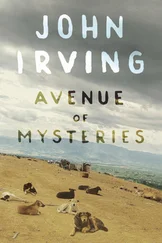It was at least a year before Joni told him, during a weekend in the woods in Drenthe, that her “procreators” divorced when she was five. More than the news itself, he was surprised that she waited so long to bring up something as relatively ordinary as divorced parents, but she was so dead serious about it, uncharacteristically earnest, that he didn’t let on. They were staying in a secluded clapboard cabin about twenty kilometers south of Assen, and the cloying romanticism of isolation and a wood-burning stove apparently gave her that little extra incentive to share. During a crisp winter walk in the woods she challenged him to guess which of her parents was the “real” one: Come on, Siem or Tineke? Good question, he said, but in fact it was a piece of cake. Sigerius, of course.
“Why d’you think that?”
“Just because. It’s a wild guess. You don’t look much like him, but not like your mother either. You’re both athletic. Athletically built too.”
In truth, they didn’t look at all alike. Sigerius was dark and swarthy, had eyes like cold coffee, he looked like a gypsy, almost sinister. His beard growth would make an evolutionary biologist’s mouth water. Joni, on the other hand, was fair and blond, butterflyish, had a face so smooth and symmetrical that Sigerius couldn’t possibly have had anything to do with it. And yet he detected a common denominator: their drive. Father and daughter possessed the same compulsive energy, wouldn’t tolerate dallying or doubt, hated the thought of giving up, and couldn’t understand it when other people — he, for instance — did so. Joni, like Sigerius, was smart and tough and decisive. Maybe it was genetic.
“So you think Siem is my real father because I’m not fat.”
He’d never really given it any thought, he realized, there had been no reason to. “Yeah,” he said. “No … Also the way you interact. You and Siem are in cahoots, you can see that within ten minutes. Janis is a mama’s girl. You’re more like your father.”
“But Janis and I are blood sisters. So there goes your theory.”
“Just tell me then.”
“So you think it’s Siem?”
“Yeah. That’s what I think, yeah.”
“Nope,” she sang, laughing. She kicked some dead branches and rotting remains of fallen leaves, as though the gravity of her disclosure evaporated at once because he’d been wrong. She didn’t say so, but her odd excitement told him she was glad he’d guessed Sigerius; he even suspected she would just as soon have left his illusion intact. And he had to admit feeling a bit disappointed — it was a pity there was no genetic tie — but of course he didn’t let her see that. Maybe Joni felt the same way, because even before they had returned to the clammy cabin her high spirits had dissipated into an inwardness he had not seen in her before.
While he silently warmed up chocolate milk on the two-burner stove and she sat on the moth-eaten sofa with an old issue of Panorama on her lap, leafing through an article on skating, he thought about the natural easiness with which she and her sister called Sigerius “Dad.” They said “Dad” with a teasing or admiring smile, wheedled him with “ple-e-e-e-ease Daddy” in his ear when they wanted something, groaned “Da-haaaad” when he irritated them. When he asked her about it, she said with a certain pride that it had been like that since day one; from the day in 1979 when Siem Sigerius and Tineke Profijt married at city hall in Utrecht — without hoopla, without tuxedo, without Rolls or Bentley, without a reception — they had addressed their stepfather as “Dad.” She was six, Janis was three. From that day on, Joni called herself Joni Sigerius. Her real surname, Beers, a word that she only grudgingly revealed, had been encased in cement and dropped to the bottom of the Vecht River.
Later, back in her student flat, she showed him ochre-brown Polaroid photos of an implausibly tiny Joni, her head sprouting two intensely blond ponytails, a surprisingly ordinary-looking little girl, an almost homely six-year-old, sticking out her tongue as she hung on the leg of a youthful Sigerius — the leg of her new father, who had let his beard grow wild. Her mother, still trim, not skinny like now, but just trim, in a sober dark-green pants suit, the snot-nosed Janis cradled in her arm, wore large brown sunglasses in all the photos because an ophthalmologist had scraped a cold sore from her left eyeball a week earlier.
Keen to put the past behind them, mother and daughters accompanied their new chieftain to America, to Berkeley, where Sigerius had been appointed assistant professor in the Mathematics Department. Not there, nor at any subsequent campus, did Joni Sigerius volunteer any information about her biological father. Aaron had to press her just to learn the man’s first name. “Theun.” “Theun,” he repeated. “Theun Beers. OK. And what did he do?” Her real father was a traveling salesman in tobacco articles, the nameplate on their front door said “smoking accessories” and behind two small doors in the tall china cupboard were cartons of cigarettes, arranged by brand, that Beers had acquired surreptitiously and sold duty-free to smoke-logged characters who appeared in their living room at all hours, usually after Joni’s bedtime, to place their gravelly voiced orders. Her father often only got home after nine, he ate his meatballs and schnitzels in salesmen’s cafés and roadside diners. Even at the weekend they seldom saw him, she said, because then he rehearsed or performed with his band, a not entirely unsuccessful blues band where he sang and played guitar.
“Blues? Did he make any records?”
“How should I know? I think so, yeah.”
( Blues? — he would have given anything to race off to his house on the Vluchtestraat to pore through his three editions of Oor’s Pop Encyclopaedia in search of Theun Beers. A blues band, Jesus, now she tells me. And sure enough, the next day he found, in his oldest encyclopedia, under the heading “Netherblues,” a three-line piece about Beers and his band: Mojo Mama, “blues-rock formation with lead singer and guitarist Theun Beers, who enjoyed a brief cult status”; once “Utrecht’s answer to Cuby + Blizzards,” cut “three LPs of varying quality,” was “famous primarily for its live act.” When he read this he pictured Tineke, Joni’s mother, as a groupie, at about the weight she was today, flower-power hat, platform shoes, sitting backstage on big Theun’s lap.)
Although uncles at birthday parties liked to joke that Theun never had to say “I’m going to go get some smokes … don’t wait up,” he had vamoosed long before the divorce, leaving a heavily pregnant Tineke and a toddler behind. She could never remember him even sleeping in the same house, which of course couldn’t have been true, but never mind.
“Do you ever think about him?”
“Never. Only during this kind of conversation. Only if somebody asks if I ever think about my real father do I think about my real father.”
The times he pressed her on that mantra of hers, if he asked “but why don’t you ever think about Theun Beers?” for instance when they were at his place watching Long Lost Family on TV, she assured him that it was not out of pique, or out of vengeance, or some kind of reproach, and no, she hadn’t “suppressed” him; the fact was that her begetter had simply vanished from her life without leaving a single impression, and that was that.
On the last day of their weekend in Drenthe, rather late actually, it was such an obvious question, he asked if Sigerius had also been married before. “Yeah,” she said drily. They had just giggled their way through a dolmen museum and were cycling side by side along a bike path parallel to a provincial road. He slammed on the brakes of his rental bike. “Why didn’t you say so earlier? Why don’t you ever tell me stuff?”
Читать дальше












